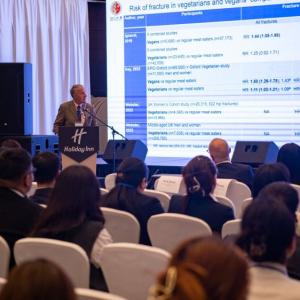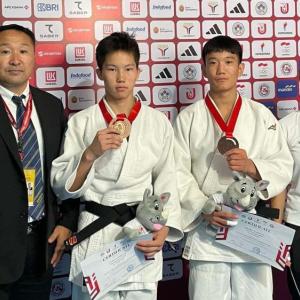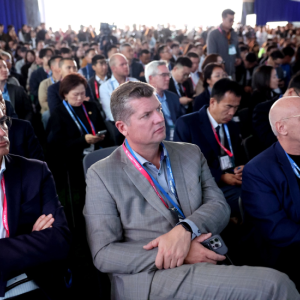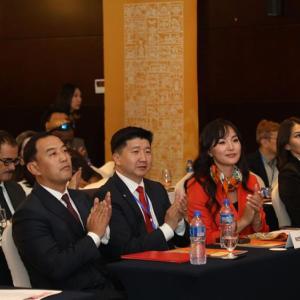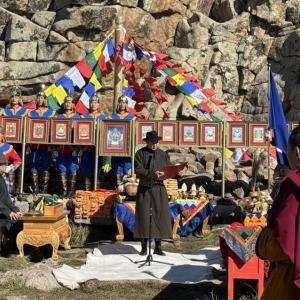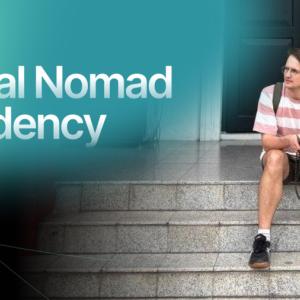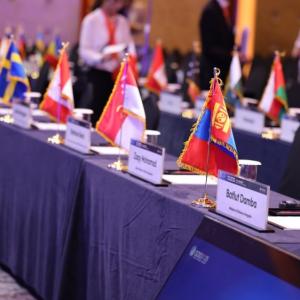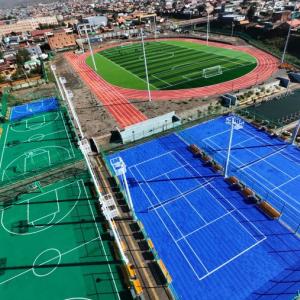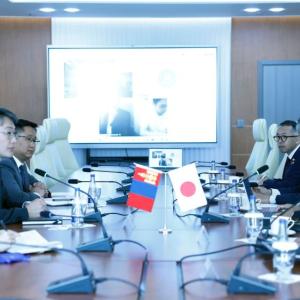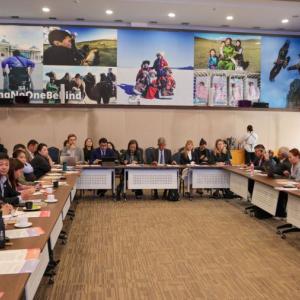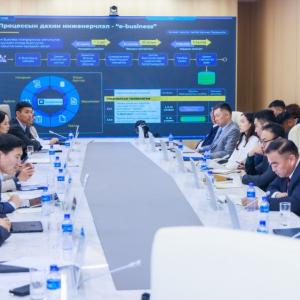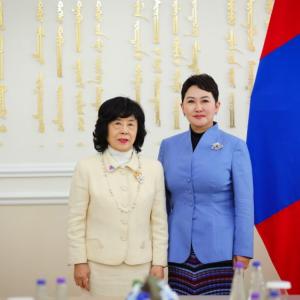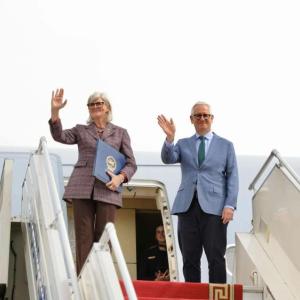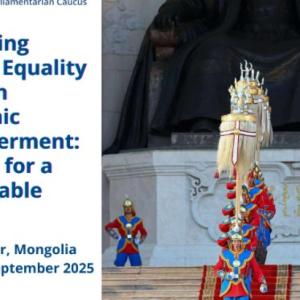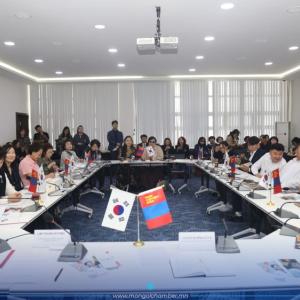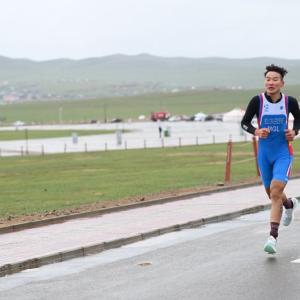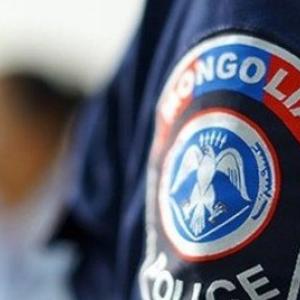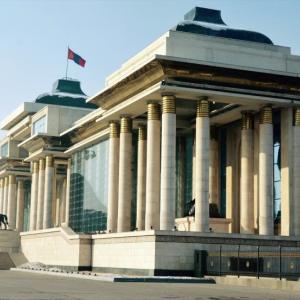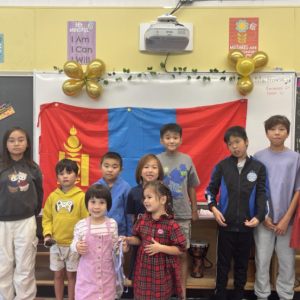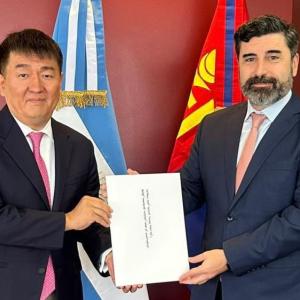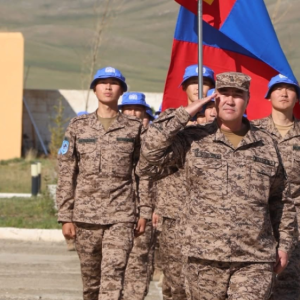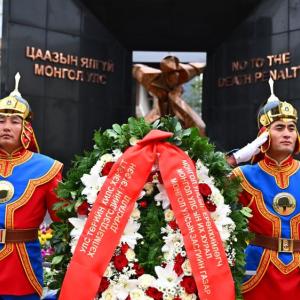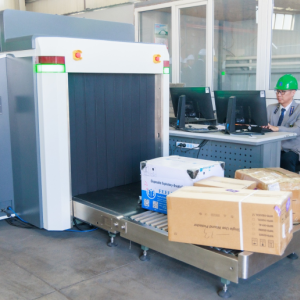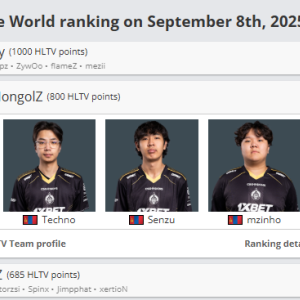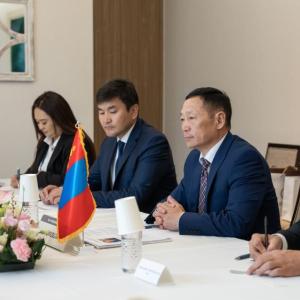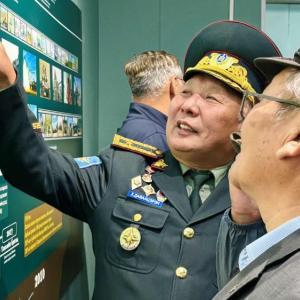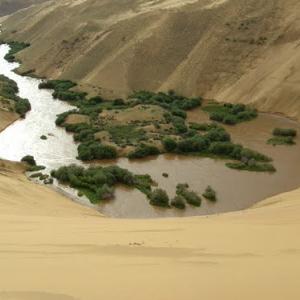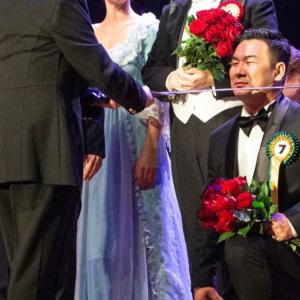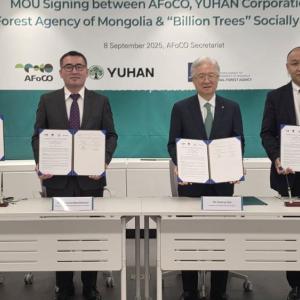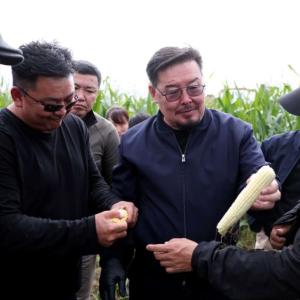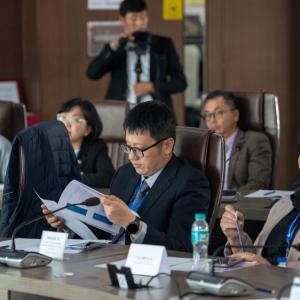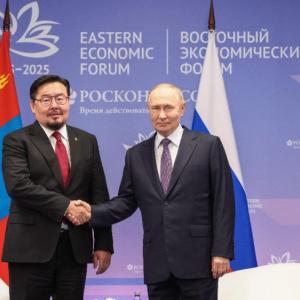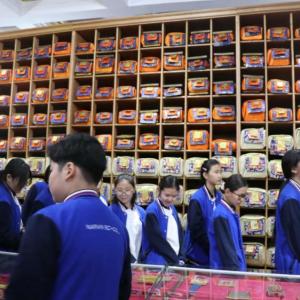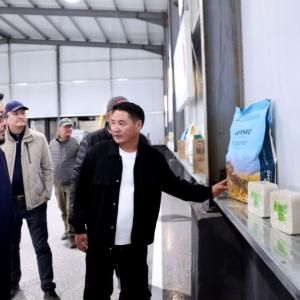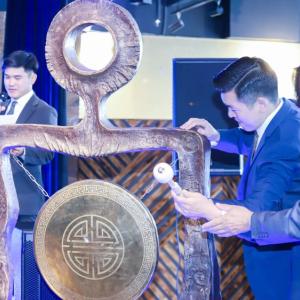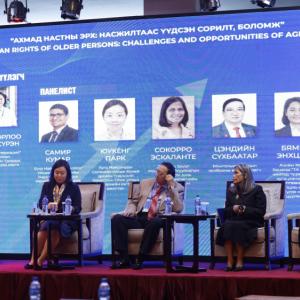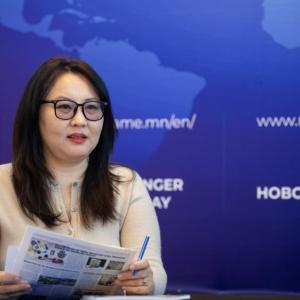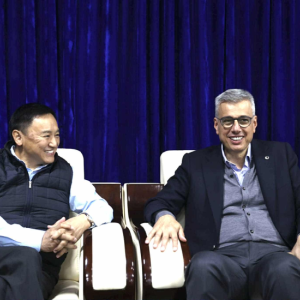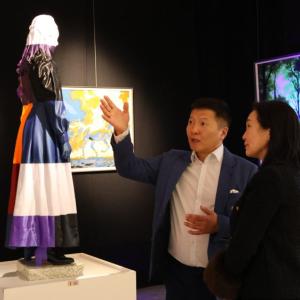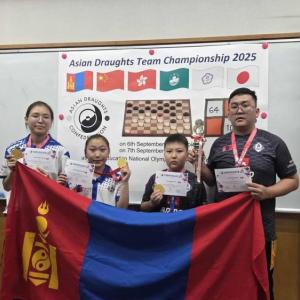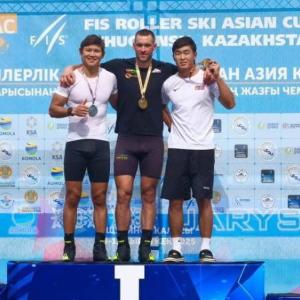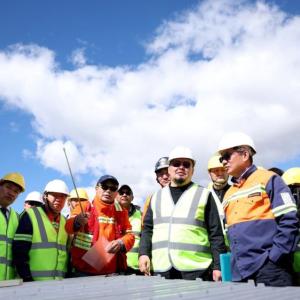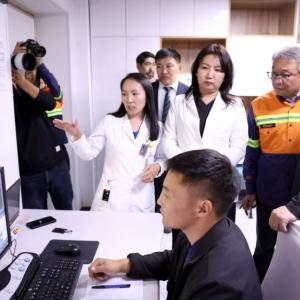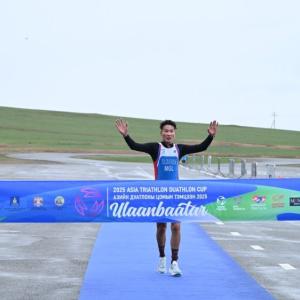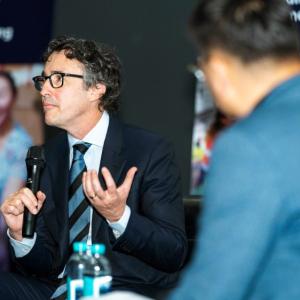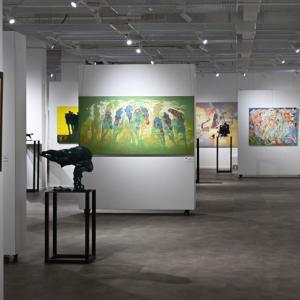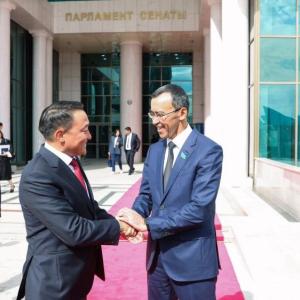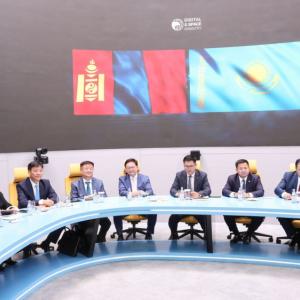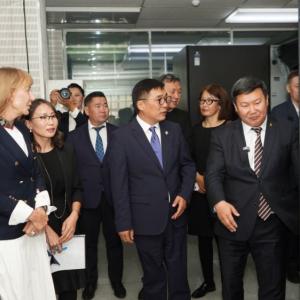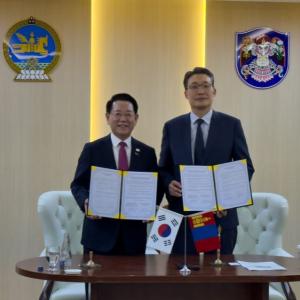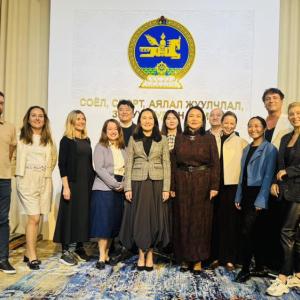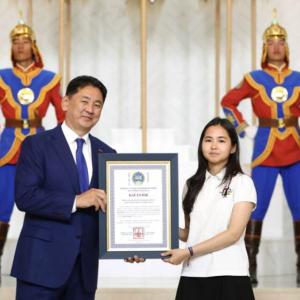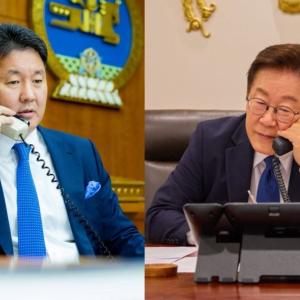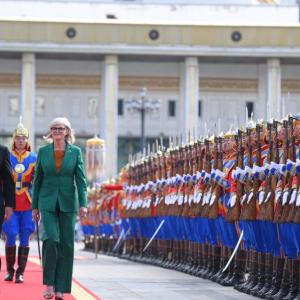The University of Humanities of Mongolia Integrates Artificial Intelligence into Its Programs
Society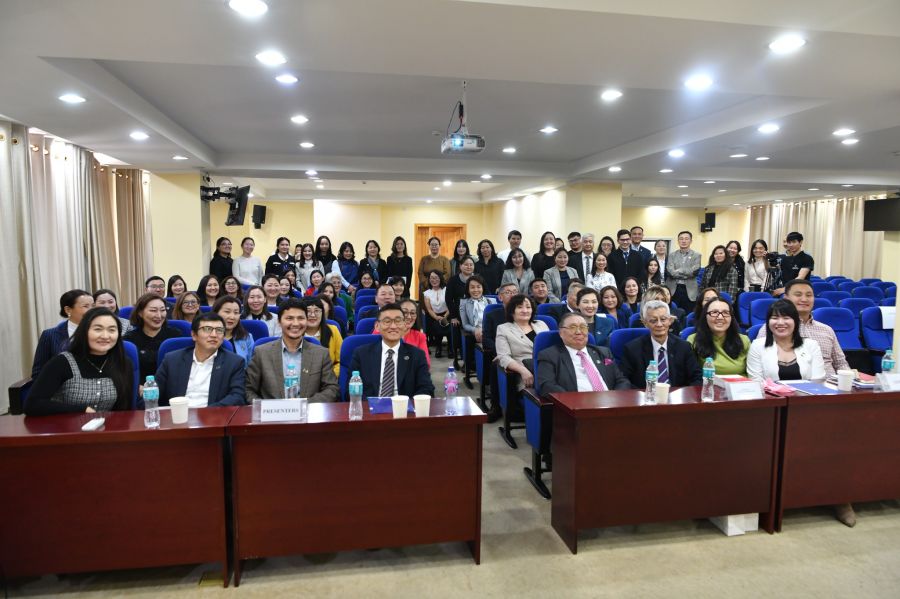
Ulaanbaatar, November 15, 2024 /MONTSAME/. In commemoration of the 45th anniversary of the University of Humanities of Mongolia, the “Interdisciplinary Research in the Digital Era” Academic Conference took place on November 15, 2024.
The University of Humanities of Mongolia has integrated artificial intelligence into its educational programs and has been implementing a 2+2 program with the Korea University of Media Arts. The University prioritizes contributing to social progress through transformative education in the humanities and social sciences, as well as impactful research. It aims at fostering creative intellect and emphasizes interdisciplinary research as a key focus in its leading research directions.
 Regarding the effective utilization of artificial intelligence in its programs, Dr. B. Bat-Erdene, Senior Lecturer of the Department of Computer Sciences of the University of Humanities, explained, “Our school is successfully implementing two artificial intelligence projects with its own copyrights, which are used exclusively for internal purposes. These projects include a machine translation system and an AI-based system. The machine translation system is utilized in linguistic technology research by graduate students in linguistics, while the AI-based system is applied in undergraduate, master’s, and doctoral courses for tasks such as project writing, assignments, code writing, and summarizing scientific research. Moreover, we incorporate educational systems from top universities worldwide. Although we intend to further enhance these systems, the development works are currently limited by certain technological and energy constraints."
Regarding the effective utilization of artificial intelligence in its programs, Dr. B. Bat-Erdene, Senior Lecturer of the Department of Computer Sciences of the University of Humanities, explained, “Our school is successfully implementing two artificial intelligence projects with its own copyrights, which are used exclusively for internal purposes. These projects include a machine translation system and an AI-based system. The machine translation system is utilized in linguistic technology research by graduate students in linguistics, while the AI-based system is applied in undergraduate, master’s, and doctoral courses for tasks such as project writing, assignments, code writing, and summarizing scientific research. Moreover, we incorporate educational systems from top universities worldwide. Although we intend to further enhance these systems, the development works are currently limited by certain technological and energy constraints."
At the Academic Conference, researchers from the National University of Mongolia, the Mongolian University of Science and Technology, and the University of Humanities of Mongolia discussed interdisciplinary research projects aligned with the characteristics of the digital age.

Professor at the University of Humanities of Mongolia D. Ulambayar, a Doctor of Science, presented a paper titled "The UN Pact for the Future and the Global Digital Compact: Goals, Nature, and Criticisms." Professor A. Amarjargal, also from the University of Humanities of Mongolia, delivered a paper on "Modeling the Interrelationship between Production and Caregiving Responsibilities of HerderHouseholds: A Case Study of Mongolia." Dr. B. Bat-Erdene discussed the innovative "Use of the 'UH AI' Artificial Intelligence Teaching Program in Education." Associate Professor at the National University of Mongolia Dr. Ch. Altantsetseg presented her research on "Language Technology." Associate Professor at the Mongolian University of Science and Technology Dr. B. Dolgorsuren introduced a study titled "Graph Structures and Their Application in Interdisciplinary Research."
Representatives from the Ministry of Education of Mongolia, the General Authority for Education of Mongolia, the Mongolian National Institute for Educational Research, the Mongolian National Council for Education Accreditation, the National University of Mongolia, the Mongolian National University of Education, the Mongolian University of Life Sciences, the Otgontenger Univerisity, the Ikh Zasag International University, and the Korea University of Media Arts participated in the Academic Conference.
The University of Humanities has launched a 2+2 program with the Korea University of Media Arts starting this academic year and has enrolled its first batch of students.
Vice President of the Korea University of Media Arts Yoo Joo Hyun noted, “This program wasn't launched suddenly. Our university has been working closely with the University of Humanities since 2000. Previously, our two universities implemented student exchange programs, and after studying what areas would be best to collaborate in, we initiated this program starting this academic year. In this program, students spend the first two years learning theory at the University of Humanities, and if they meet the required scores, they will intern at our Korea University of Media Arts for the next two years, starting in the fall of 2026. There, they will gain deeper knowledge in preparing broadcasts, content creation, and technical skills. We are confident that our two universities will successfully implement this program together. In my opinion, the development of each student is more important than the development of the two universities. I wish them success in their studies.”
The Korea University of Media Arts successfully runs its 2+2 program with universities in China and Taiwan.


 Ulaanbaatar
Ulaanbaatar


